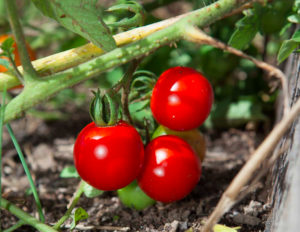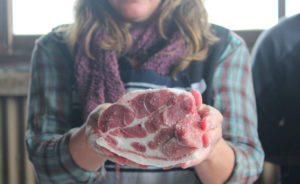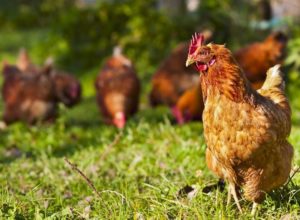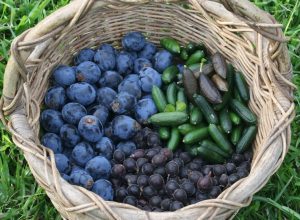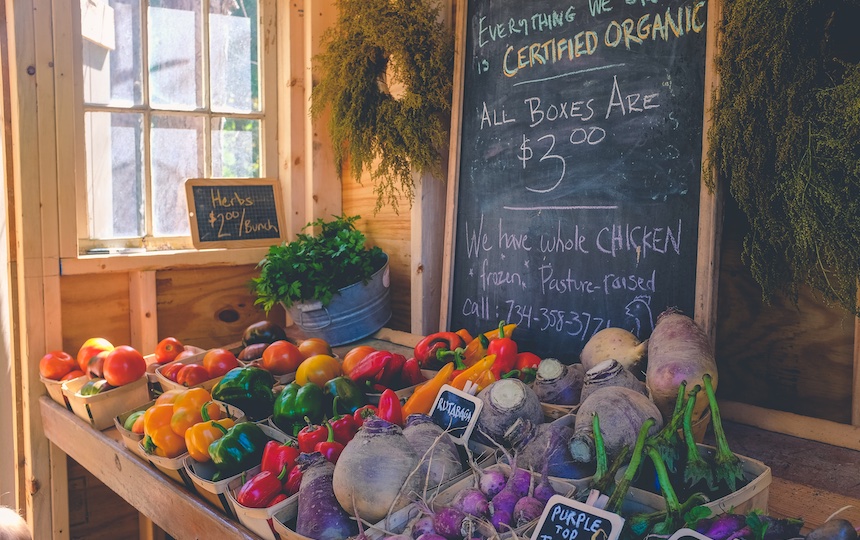To support the launch of the Australian Food Sovereignty Alliance’s crowd-funding campaign for a legal fighting fund for small scale farmers, we’re sharing this article by AFSA president and ethical pig farmer Tammi Jonas, from Pip Issue 5, our Fair Food Issue.
Like Tammi, here at Pip we’re passionate about food that connects and creating a system that is beneficial for both growers and eaters. We’ve been deeply concerned by Government regulations that have threatened ethical farming operations at Happy Valley Farm in Victoria and Elgaar Farm in Tasmania. That’s why we’re supporting AFSA’s crowd-funding campaign and we hope you do to!
Food that Connects by Tammi Jonas
Why does a tomato plucked straight off the bush in your own backyard taste so much better than one from the supermarket? Why does an egg laid moments ago by Henrietta just outside your kitchen window look, taste and even feel better than one from a carton of supermarket eggs?
Beyond the romance and deep pleasures of hands in soil, and the joy of sweet red orbs grown from tiny seeds that you thumbed into your garden beds and nurtured daily, freshness clearly also plays a part.
A supermarket tomato can be weeks old before it makes it onto your chopping board. And, because of that time between harvest and table, the fruit is picked unripe to survive its long journey to a household, through countless refrigerated storage points: chiller to truck, to chiller, to truck, to supermarket shelf, to bag, to home.
But it’s not only freshness or ripeness that affects the flavour of the fruit we eat. How it was grown matters: was it grown outside in summer sunshine in rich, organic soil, weeded and harvested by hand; or was it grown in a medium of coconut husks, trellised a metre off the ground in a hoop- house in autumn, with tubes feeding it synthetic fertilisers? And who grew the tomatoes? Was it an army of migrant labourers earning less than minimum wage, feeding the insatiable hunger of the duopoly’s shareholders; or was it you, planting heirloom seeds, and tending them until the day you bring the juicy fruit of your toil to your lips, mere metres away from where you grew them.
And what if, instead of tomatoes or eggs, we were talking about pork, beef, lamb or any other meat or food that you simply can’t grow in your own backyard, unless you own a farm? How can you achieve the same satisfaction, and indeed trust, in what you’re eating?
For the average eater, the growth of farmers’ markets has bridged the gap created by the long, obfuscated supply chains that are the hallmark of industrial agriculture. Farmers turn up, rain or shine, to sell you the food they grew with their own hands, answer your questions, and help you to feel connected to that most visceral life need – the food that sustains you. Now imagine a system where you can visit the farm, see the vegies you cook up for your family each week still in the ground, pat the pigs that make the bacon your daughter loves to eat with her backyard eggs each Saturday morning. Imagine you could become a member of such a farm: supporting its efforts to grow you delicious, ethical food in ways that regenerate the land; learning how to live and eat like a farmer yourself.
This is the beauty of community-supported agriculture (CSA) – a solidarity economy, where the farmer realises the full dollar-return for her labour; and you enjoy not only beautiful produce, but the knowledge that you are ensuring the viability of a small family farm. You share some of the risk with the farmer – if it’s a bad year for tomatoes, you accept that this year you won’t have as many tomatoes – and your sense of entitlement to tomatoes diminishes as your appreciation of the vagaries of weather and pests deepens.
Australia has a small but growing CSA movement, a model developed in Japan in the 1970s under what are called the ‘teikei principles’. The most basic principle of teikei is a direct distribution system based on relationships, not mere transactions. In summary, the ten principles are to:•build a friendly and creative relationship, not as meretrading partners;•produce according to pre-arranged plans on an agreement between the producer(s) and the consumer(s);•accept all the produce delivered from the producer(s);•set prices in the spirit of mutual benefits;•deepen the mutual communication for the mutual respect and trust;•manage self distribution, either by the producer(s) or by the consumer(s);•be democratic in the group activitiesake much interest in studying issues related to organicagriculture;•keep the members of each group to an appropriate number; and•go on making a steady progress, even if slow, toward the final goal of the management of organic agriculture and an ecologically sound life.
In the USA, there are now 12–13 000 CSAs feeding their communities directly. In Japan, Canada, and France there are also thousands of CSAs. The movement has grown so success fully in Europe that there are a number of regional European CSA networks to support farmers and eaters in their efforts. Urgenci, the International Network for CSA, was established in 2006. As a CSA farmer myself (in addition to being President of the Australian Food Sovereignty Alliance), I was honoured to be invited to participate in the 2015 Urgenci Symposium, outside Beijing China. This included two days of inspiring farm visits, three days of sharing knowledge and experiences with people from across the world, and a final day of the General Assembly to determine the action plan for the next two years.
I learned that European and American CSA farmers feel under threat from the rise of the ‘box scheme’, where a company coordinates collection of produce from many farms and delivers it to customers. This model can be driven by the same ecological motivations of CSA farmers – to provide only local, seasonal produce and support farmers in the region; but it can also be driven by the same old profit motives that see supermarkets make their offerings and locations as convenient as possible, to lure more customers in…
To keep reading, subscribe to Pip Permaculture Magazine or donate to the AFSA Legal Defence Fund here.


